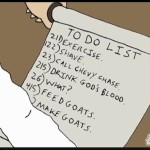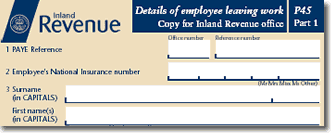Weather to believe ’em or not….
Friday, January 21st, 2011A tale of two headlines: Daily Mail – 2010 was ‘second warmest year’ since records began in 1850. Daily Telegraph – 2010 was the coldest year since 1986. The gist of the story is that pretty much everywhere on the planet had a record-breakingly hot year… except us in the UK.
There are those that will clutch this information as further evidence of anthropological (i.e. man-made) global warming. However, the newsworthy weather events around the world this year are all manifestations of the regular La Nina weather pattern which predicts cooler currents in the central and eastern Pacific, leading to increased rainfall. This impact of this La Nina has been particularly strong, with huge swathes of Queensland, Sri Lanka, Brazil and South Africa flooded (the latter doesn’t seem to have generated so much news coverage though). As I’m sure you all know, La Nina is the reverse of the El Nino warming of the Southern Oceans, reputed to show its impact around Christmas time, hence the name. El Nino episodes reduce rainful and therefore have the opposite effect – droughts and forest fires.
Regularity does not imply predictability though:
- La Nina conditions do not always necessarily follow El Ninos,
- the cyclic frequency varies from 2-7 years,
- the length of the cycle from 7 months to 2 years
- the strength is also variable – effects lasting less than 3 months are ignored, changes in sea-surface temperatures lasting up to 7-9 months are categorised as El Nino / La Nina conditions, and only if they last longer than 9 months is it officially an El Nino / La Nina episode
So what is a “standard” La Nina year? Yes we have unprecedented photographic and media coverage of the impact this year, but does that mean its an unprecedented year meterologically speaking?
I am not a climatologist, but I know something of complex systems, and weather is one of the most complex around. I’m just not convinced that 160 data points is enough to draw any conclusive trend on global temperatures for any more than the 160 years measured. Nasa report that they only have solid La Nina data going back 50 years. That’s not even an eye-blink of time in comparison to the history of the planet. Not even enough time for a synapse to fire to begin the thought of blinking an eye. This is the strongest La Nina in 50 years – that’s all we can state. Anthropological global warming may be true, but be very wary of anyone who declares that to be a fact – we have insufficient evidence to call it that. It’s a hypothesis, and even if it is true, solar effects as part of the sun-spot cycle could easily mask or reverse its effects. I’m not convinced humans are important or clever enough to change anything.










